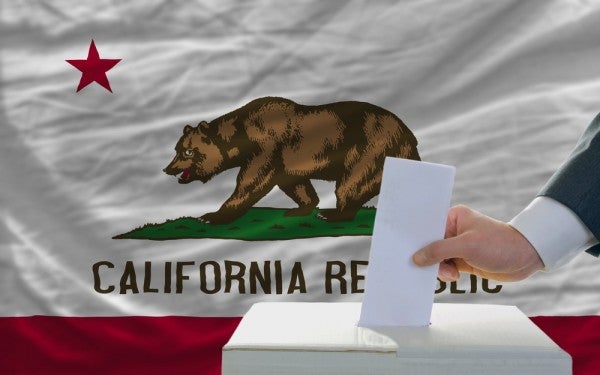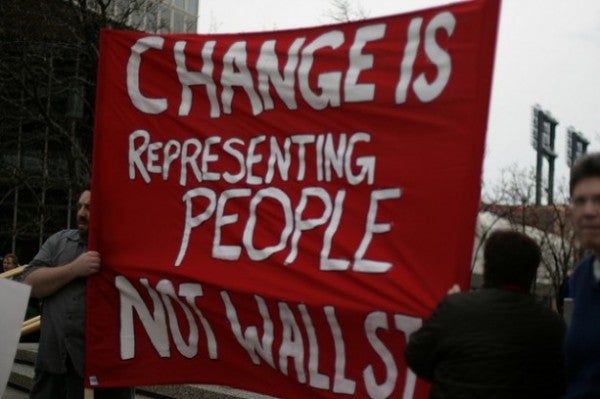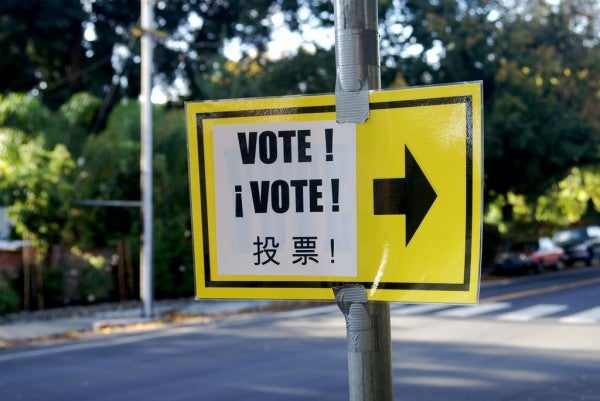
Most agree that California’s political system is broken, and experts say one major hurdle to fixing it is citizens’ disengagement. The voter registration rate is among the lowest in the country, and just one-third of residents report talking about politics at least a few times a week – putting the state 46th nationwide. In advance of a panel about why Californians are so disengaged, we put the question to experts who have seen the effects first-hand.
Citizens Have Been Shut Out of the Process

Why don’t Californians talk about politics? Because it’s not as exciting as reality t.v., less instructive than a baseball game and unable to leap tall buildings after many bounds. Because they know little about the state, their only required class having been in the fourth grade and later information gathered only from happy-talk news and drive-by talk radio. Because it’s hard to get interested in a losing team. Because it has no heroes to lead the charge and explain the fight. A small nation of 3.5 million found 55 orator/leaders to go to Philadelphia, but this grizzly of a state with ten times the population has none.
Californians don’t talk about politics because they remember broken promises. Because the dead phrases and wedge issues of state politics don’t catch the realities of their lives. Because like other Americans they are more interested “in the punctilios of court etiquette than in the repair of their common dwelling,” as Tocqueville feared and recent news programs confirmed.
Californians don’t talk about politics because money talks instead. With one percent of the population taking 25 percent of the state’s annual income, the bottom 50 percent knows that what they have to say would not be heard. They don’t talk because if they voted and their candidate lost, the winner-take-all system gives them zero voice. They don’t talk because they can’t save the programs they need from the annual budget triage. Half the population doesn’t talk or is absent from the voting booth because the issues that count for them – jobs, housing and more – are absent from the ballot. Californians don’t talk about politics, finally, because it doesn’t talk about them.
Jeff Lustig is editor of and contributor to Remaking California, Reclaiming the Public Good, Professor Emeritus of Government at CSU Sacramento and the founding chair of the California Studies Association.
—————————————————————————————————————
Extreme Partisanship Killed Our Desire to Talk

Why don’t Californians talk about politics? Here is why:
Proposition 13, negative ideologues, ultra partisanship, gridlock, ballot box budgeting, terms limits, new population — no perspective. Now to explain:
During California’s “golden years,” moderation and lack of partisanship prevailed and “home rule” was the watchword of local government and thus voter participation. And we had no “aisles” in Sacramento. We sat together, we ate together and, yes, played together — thus isolating the ideologues. Then “political reform” set in. Democratic legislators repealed the bipartisan cross-filing system, voters in Prop. 9 killed all bipartisan events for legislators (they literally don’t know each other) and the Republican-sponsored Prop. 13 shifted all power to Sacramento in 1978. Our culture of civility was destroyed by growing ultra-partisanship; thus, the present gridlock. Term limits, also Republican sponsored, nailed the coffin and put an absolute end to legislative leadership and simple legislative camaraderie and compromise. Ergo, the public turned off.
Add to the above California’s convoluted fiscal processes, which are basically un-understandable to voters and most office holders. Combine Prop. 13 having neutered local government with ballot box budgeting passed by the money-dominated initiative process and you cause voter befuddlement and voters’ lack of ability to rationally govern. So why talk about it? For good measure, add the massive interstate migration to California (very few have older roots), the rapid reduction of newspaper reading and the already established “turn-off,” and you have a real dialogue vacuum.
Now the question is: What forces will be attracted to that vacuum, perhaps allowing California to be governable again? The new open primary system will help.
William T. Bagley is an attorney and a former member of the California Assembly as a Republican representing San Rafael. He also was a member of the University of California Board of Regents and is the author of California’s Golden Years: When Government Worked and Why.
—————————————————————————————————————
Our Education System Has Failed Us

Californians are unique in many ways, but not when it comes to their aversion to discussing politics. Indeed, this is a national malady with the potential for serious repercussions for future generations. That said, it’s particularly disconcerting here because of the state’s position relative to the rest of the nation.
To begin with, representative democracy is messy stuff that operates both vertically and horizontally. Figuring out who does what, when, how and why can be a messy undertaking that’s enough to send one’s head spinning.
Add to that the fact the inattentive education system assumes that students absorb their understanding of politics through their skin rather than through classroom education – a problem that has been exacerbated by less time for such discussion at home. A recent report by the National Assessment of Educational Progress finds that only 24 percent of high school seniors are proficient in civics.
Finally, technology has brought us a whole range of information conduits. First newspapers, then radio, then television, and now the Internet provide us with more sources of news than one ever imagined, yet determining the accuracy of those sources is another matter altogether. Few people have the inclination to conduct such research.
All these elements resonate in California more so than most other places because of our decaying infrastructure and collective unwillingness to do much about it. Now ranked 48th in per capita public education expenditures, the public just doesn’t see the value of investment, especially if it costs money. Major corporations are just as uncommitted, making their profits here but parking them abroad where most of their production takes place. And elected officials are reluctant to tell voters the truth about the state’s disrepair, lest they be tossed out of office prematurely by angry voters who don’t want to hear it.
Fifty years from now when historians discuss The Great Chinese Century, someone will ask, how did the United States ever manage to lose its place as the world’s leading economic and political power? The origins to the answer are found above. The epicenter of the decline will be found in California.
Larry Gerston is a political scientist at San Jose State University and the author of several books about public policy, including California Politics and Government: A Practical Approach, now in its 11th edition.
*Photo courtesy of Cyco GoOz.







